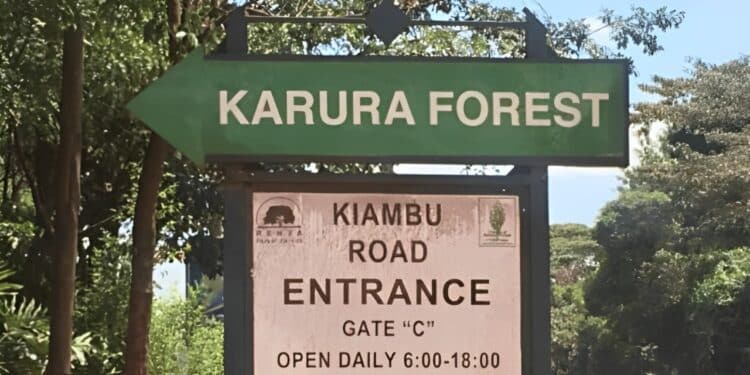The government has issued an update for tourists who have booked trips to national parks, reserves, and sanctuaries in Kenya prior to the implementation of new conservation fees on October 1, 2025.
In a statement issued on Monday, September 29, the Kenya Wildlife Service (KWS) stated that the tourists will not be affected by the revised charges.
Additionally, KWS confirmed that all pre-paid bookings made through the eCitizen platform will be honored, even after the fee adjustments take effect.
“KWS will honor all eCitizen payments made before this announcement and the revised fees will therefore apply only to new bookings made for 1st October onwards,” stated KWS Director General, Prof. Erustus Kanga.
Also Read: Govt Calms Angry Kenyans Over Viral Karura Forest Petition
KWS Explains the Benefit of the Cost Increase
According to the statement, the new conservation charges are anchored in the Wildlife Conservation and Management (Access, Entry and Conservation) (Fees) Regulations 2025.
The regulations were approved by Parliament on September 25 and will take effect officially on Wednesday, October 1.
Moreover, Cabinet Secretary for Tourism and Wildlife Rebecca Miano reassured the public that the transition will be smooth.
She has noted that the ministry is committed to ensuring a seamless implementation of the newly approved conservation fees.
The new regulations are the outcome of a year-long open, consultative, and participatory process involving stakeholders from across the conservation, tourism, and the general public.
The changes come nearly two decades after the last comprehensive review of conservation fees.
“The last comprehensive review of conservation fees was carried out 18 years ago, despite a significant increase in the cost of parks and reserves management, and the expansion of Kenya’s tourism and wildlife conservation,” the statement noted.
Also Read: KWS Lists 34 Parks and Reserves for Free Entry, Issues Guidelines [Full List]
How Will the Changes Affect Tourism Experiences
Authorities say the revision is long overdue and necessary to ensure the sustainability of the system.
“The reviewed regulations are intended to strengthen the financial sustainability of wildlife conservation, enhance visitor experiences,”
“And ensure that Kenya’s parks and reserves remain globally competitive while safeguarding the country’s unique wildlife heritage,” KWS explained.
According to KWS, the new regulations are the outcome of a year-long consultative process that involved conservation stakeholders, tourism players, and the public.
The agency believes the adjustments will ultimately benefit visitors by improving facilities, services, and conservation outcomes.
The fee changes will affect both local and international visitors entering Kenya’s protected areas.
However, authorities have noted that the increases are in line with regional and global standards and will provide critical resources for conservation.
Tourism, being one of Kenya’s biggest foreign exchange earners, and the ministry believe that the new framework will not scare away visitors, but will instead increase revenue.
“Kenya remains committed to safeguarding its wildlife heritage while ensuring visitors enjoy world-class experiences in its parks and reserves,” the ministry added.
Follow our WhatsApp Channel and X Account for real-time news updates.













































































